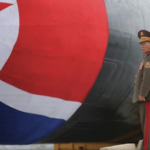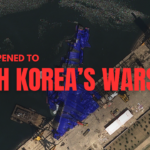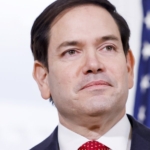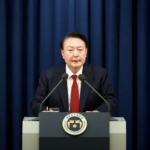June 23, 2025, by Jennifer Jun, Asia Maritime Transparency Initiative and Victor Cha—
Satellite imagery and AIS data analysis provide the first comprehensive timeline on the Chinese structures in the South Korea-China Provisional Measures Zone... View of the Atlantic Amsterdam, May 30, 2025. Copyright © Maxar Technologies. Image may not…
June 20, 2025, by Joseph S. Bermudez Jr., Ellen Kim and Victor Cha—
This book offers the most definitive study of North Korea's ballistic missile submarine (SSB), submarine-launched ballistic missile (SLBM), and submarine-launched cruise missile (SLCM) programs... Bloomsbury Publishing (2025) North Korea's ongoing development of submarine forces and sea-based ballistic missile capabilities…
May 30, 2025, by Victor Cha—
CSIS' Victor Cha walks through the implications of U.S. troop withdrawal, explains the history of U.S. troop commitment in Korea since 1955, and discusses President Trump's inaction over North Korea's provocations... The Wall Street Journal recently reported that the Trump administration is considering a withdrawal of…
May 30, 2025, by Joseph S. Bermudez Jr. and Sydney Seiler—
What happened to the failed launch and damage of North Korea's second guided missile destroyer on May 21, 2025?.. What happened to the failed launch and damage of North Korea's second guided missile destroyer on May 21, 2025? What caused the failure at the Hambuk Shipyard in Chongjin, which lacks significant expertise in manufacturing…
May 19, 2025, by Victor Cha and Andy Lim—
CSIS Beyond Parallel created a timeline documenting major developments in the growing North Korea-Russia relationship since 2022... The war in Ukraine has precipitated a renewed relationship between Russia and North Korea. Driven by Russia’s need for ammunition for the war, and North...
May 1, 2025, by Andy Lim and Victor Cha—
Beyond Parallel created an original dataset of all high-level visits between the two countries from 1953 to the present to determine whether the number of high level visits over the last six decades could shed light on the current state of the relationship.
February 12, 2025, by Robert King—
This first appeared as a…
January 15, 2025, by Victor Cha and Ellen Kim—
Yoon Suk Yeol, the lionized…
October 28, 2024, by Victor Cha—
This first appeared as a…
September 24, 2024, by Victor Cha—
In this groundbreaking book, the leading scholar and practitioner Victor D. Cha shines a light into the “black box” of North Korea and draws critical lessons for the possible reunification of Korea after many decades of division... 2024, Columbia University Press "[The Black Box] calls on privileged insights into North Korea. Peace,…









